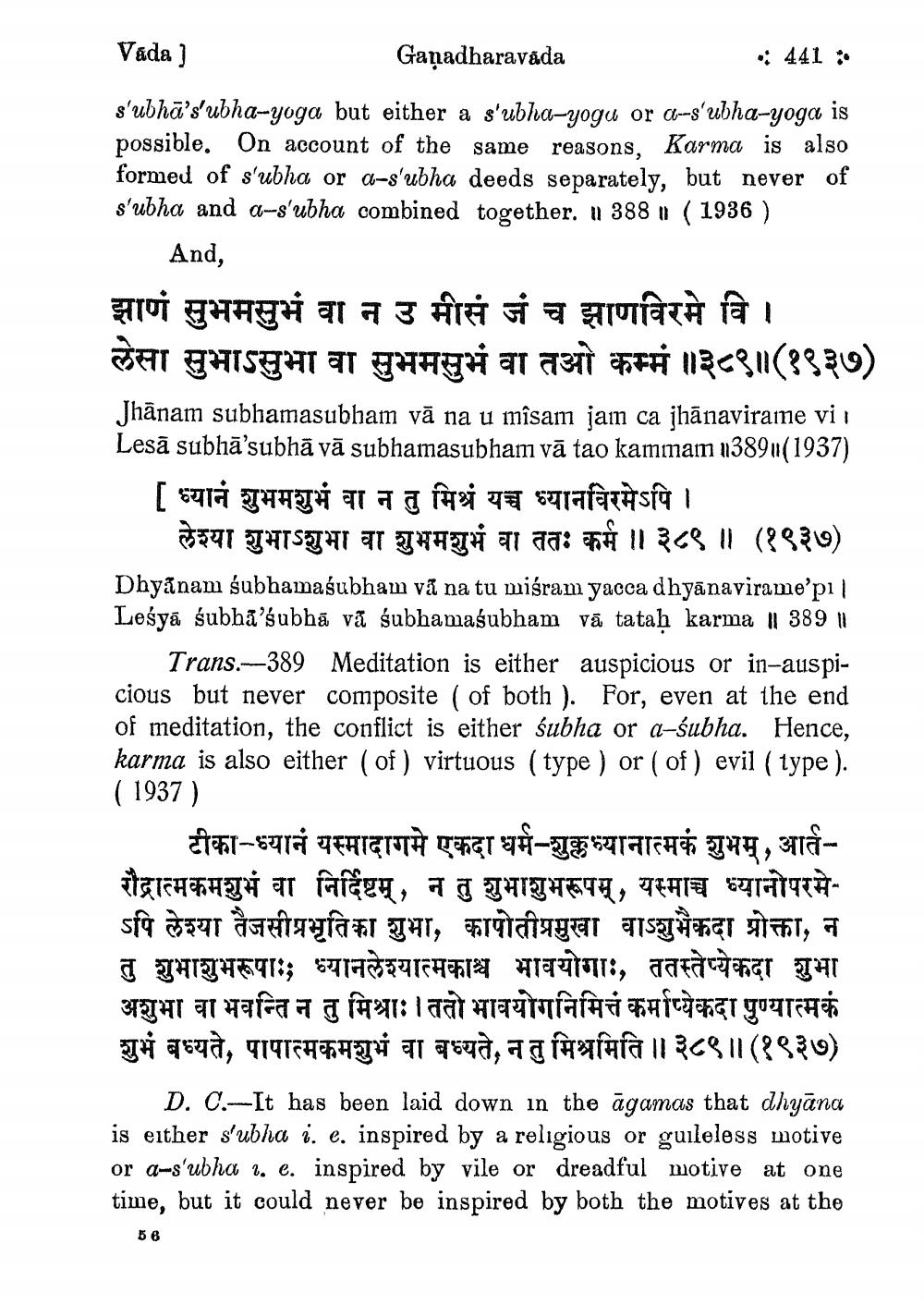________________
Vada ] Gañadharavada
: 441 : s'ubhā’s'ubha-yoga but either a s'ubha-yogu or a-s'ubha-yoga is possible. On account of the same reasons, Karma is also formed of s'ubha or a-s'ubha deeds separately, but never of s'ubha and a-s'ubha combined together. 1 388 ) ( 1936 )
___And, झाणं सुभमसुभं वा न उ मीसं जं च झाणविरमे वि । लेसा सुभाऽसुभा वा सुभमसुभं वा तओ कम्मं ॥३८९॥(१९३७) Jhānam subhamasubham vā na u mîsam jam ca jhānavirame vi i Lesā subhā'subhāvā subhamasubham vā tao kammam 1389|(1937) [ ध्यानं शुभमशुभं वा न तु मिश्रं यच्च ध्यानविरमेऽपि ।
लेश्या शुभाऽशुभा वा शुभमशुभं वा ततः कर्म ॥ ३८९ ॥ (१९३७) Dhyanam śubhamaśubham vá na tu miśram yacca dhyānaviramo'pi | Leśyā śubhāśubhā vā śubhamaśubham vā tataḥ karma ll 389 11
Trans.-389 Meditation is either auspicious or in-auspicious but never composite ( of both ). For, even at the end of meditation, the conflict is either śubha or a-śubha. Hence, harma. is also either ( of ) virtuous (type ) or ( of ) evil ( type ). ( 1937) ____टीका-ध्यानं यस्मादागमे एकदा धर्म-शुक्लध्यानात्मकं शुभम् , आर्तरौद्रात्मकमशुभं वा निर्दिष्टम् , न तु शुभाशुभरूपम् , यस्माच ध्यानोपरमेऽपि लेश्या तैजसीप्रभृतिका शुभा, कापोतीप्रमुखा वाऽशुभेकदा प्रोक्ता, न तु शुभाशुभरूपाः; ध्यानलेश्यात्मकाश्च भावयोगाः, ततस्तेप्येकदा शुभा अशुभा वा भवन्ति न तु मिश्राः। ततो भावयोगनिमित्तं कर्माप्येकदा पुण्यात्मकं शुभं बध्यते, पापात्मकमशुभं वा बध्यते, न तु मिश्रमिति ॥३८९॥ (१९३७)
D. C.-It has been laid down in the āgamas that dhyāna is either s'ubha i. e. inspired by a religious or guileless motive or a-s'ubha 2. e. inspired by vile or dreadful motive at one time, but it could never be inspired by both the motives at the




